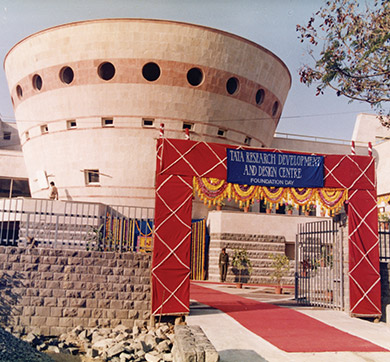November 2023 | 1962 words | 8-minute read
Did you know that Tata Motors filed a record number of 158 patents and 79 designs in FY2023 — the highest cumulative number of patents filed by any Indian commercial vehicles and passenger car original equipment manufacturer? This was part of the 1,500+ patents filed by the Tata group in the past year. Meanwhile, the 2022 edition of the group’s annual innovation event, Tata InnoVista, drew 36,000+ innovators across 38 Tata companies, who participated with 15,000+ innovations.
It is this relentless pursuit of innovation that is reflected in the Tata group’s ranking as the only Indian enterprise on Boston Consulting Group’s (BCG) list of 50 Most Innovative Companies 2023.
How it started
The drive for innovation can be traced back to the Founder, Jamsetji Tata, who travelled the world seeking the latest ideas and technological advancements, bringing the best to India to enable indigenous innovations and form the bedrock of pioneering Tata companies.
A notable instance of Jamsetji’s approach to innovation was his adoption of ring spindle technology at Empress Mills in 1883. In America, where this technology was invented, no mill owners had shown similar foresight. In Lancashire, England, then the Cottonopolis of the world, too, experiments were still at a tentative stage when Empress Mills had already integrated it into daily use. Jamsetji’s readiness to experiment with technologies — in a first for India, the Empress Mills was also equipped with humidifiers and fire sprinklers — gave the mill a distinct advantage over global counterparts.
Jamsetji’s quest for innovation took him to Chicago for the 1893 World’s Columbian Exposition, a celebration of technology and industrial progress. It took him to Europe in 1902, where he saw turn-of-the-century technology in the form of spun steel pillars in France and electric elevators in Germany and procured them for the then-under-construction Taj Mahal Palace in Mumbai. He spent considerable time seeking the latest technologies in steel manufacturing and hydropower generation in America and Europe. And he set the foundation for future generations of Indian scientists and technologists to innovate such marvels at home with his vision of the Indian Institute of Science.
The Founder’s spirit of innovation has guided those who followed. It led to the establishment of Tata Steel, India’s first integrated steel company in 1907, and Tata Power’s construction of the largest hydroelectric project in the world in 1913, with the latest in technology from the United States, England, Germany and Switzerland, under the leadership of Sir Dorabji Tata.
1870s
- 1st humidifiers and fire sprinklers in India, Empress Mills, 1877
1900s
- 1st Indian hotel with electricity and elevators, Indian Hotels Company, 1903
- 1st integrated steel plant in India, Tata Steel, 1907
This was followed by pioneering industries and investments in R&D under JRD Tata. Tata Air Services became India’s first airline. Tata Motors emerged as the first Indian company to manufacture locomotives and made-in-India trucks. Voltas became the country’s first manufacturer of ACs and Tata Consultancy Services (TCS) was the first Indian software services company. The group also established India’s first industrial R&D division at Tata Steel as early as 1937 and India’s first dedicated software R&D centre, TCS’ Tata Research Development and Design Centre, in 1981.
JRD believed all growing organisations must actively seek “new ideas, new visions and new enthusiasms”. Speaking to the Indian Merchants’ Chamber in 1968, he noted, “We must be ready to think every problem afresh, to change and innovate every time it pays to do so. … We must bring trained young minds to bear on new problems and not cling to outmoded ideas and methods because they worked well in our grandfathers’ time.”

1910s
- 1st Indian hydroelectric power generating station, Tata Power, 1915
1930s
- 1st Indian airline, Tata Air Services, 1932
- 1st industrial R&D division, Tata Steel, 1937
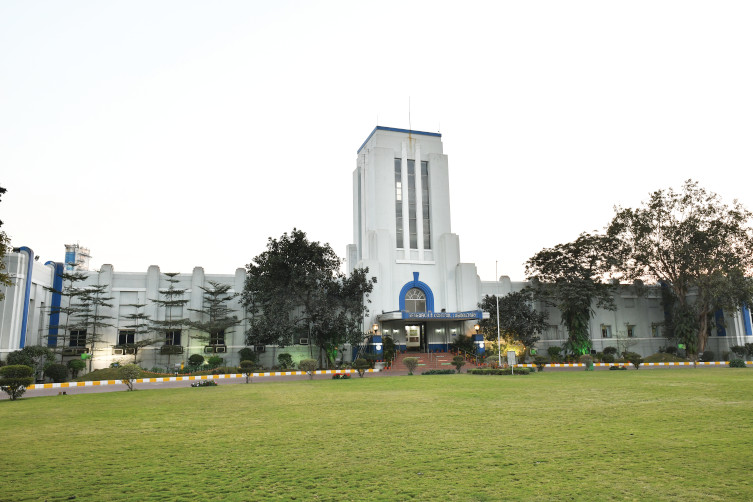
How it’s going
The Tata firsts, which began with pioneering industries for India, expanded to product and service innovations. If Air India launched India into the jet age in the 1960s — the first Asian airline to enter the jet age with the arrival of the Boeing 707 — Tata Motors set the roads abuzz in the 1990s with Tata Sierra, the first indigenous passenger vehicle, Tata Indica, the first fully indigenous car, and Tata Safari, the first indigenous SUV. If the 1980s brought India its first packaged iodised salt in the form of Tata Salt and Tata Tea’s revolutionary poly pack, Tanishq transformed the gold purity checking process with the introduction of the non-destructive Karatmeter test in the 1990s.
The new millennium brought with it a new wave of Tata firsts and, with it, greater aspirations. Tata Motors not only developed India’s first mini truck, the Tata Ace, but also began to build India’s safest cars like the Nexon, the first made-in-India car with a five-star GNCAP rating, and the Tigor EV, the first and only made-in-India EV with a four-star GNCAP rating. While Titan created the world’s slimmest watch with Titan Edge, TCS built India’s first supercomputer, Eka, and Tata Elxsi supported India’s first inter-planetary mission, Mangalyaan, with its data control hardware.
1940s
- 1st Indian-made armoured vehicle — Tatanagar, Tata Motors, 1942
- 1st Indian company to make locomotives, Tata Motors, 1945
1950s
- 1st made-in-India trucks, Tata Motors, 1954
- 1st made-in-India AC, Voltas, 1954
- 1st digital computer of India — TIFRAC, Tata Institute of Fundamental Research, 1956
- 1st drawstring tea bag in the world, Tetley, 1957
1960s
- 1st Asian airline to enter the jet age, Air India, 1960
- 1st Indian software services company, TCS, 1968
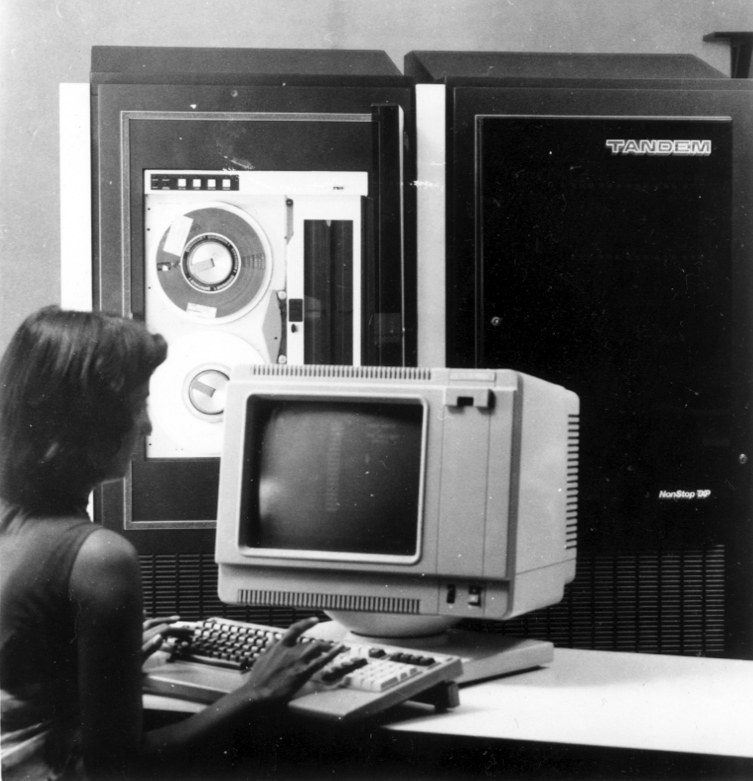
Innovations across the Tata group also adopted a sustainability-first focus, embracing the environmental imperatives of the times. Voltas manufactured India’s first energy-efficient AC. Jaguar Land Rover launched the world’s first premium all-electric SUV. Tata Motors took the lead in developing India’s first hydrogen fuel cell bus for commercial application. Tata Chemicals commissioned the first carbon capture unit in the United Kingdom, while Tata Steel became the first Indian manufacturing plant to be recognised as a World Economic Forum Lighthouse of the Fourth Industrial Revolution.
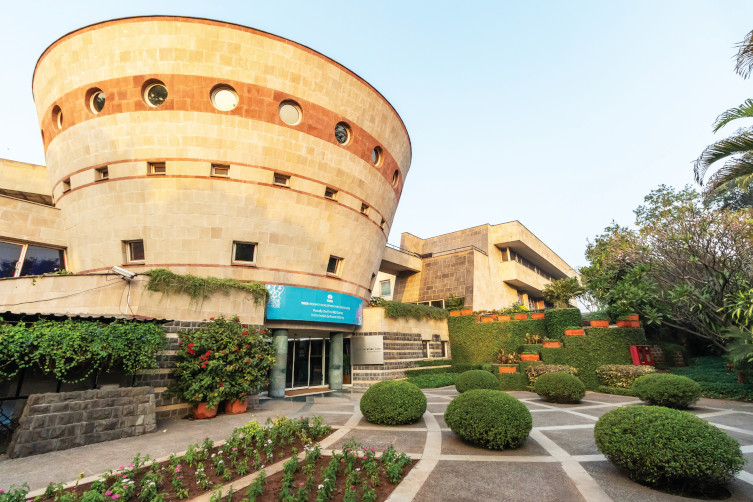
1980s
- 1st Indian software research and development centre — Tata Research Development and Design Centre, TCS, 1981
- 1st packaged iodised salt — Tata Salt, Tata Chemicals, 1983*
- 1st poly pack format, re-imagining the packaged tea market — Tata Tea, Tata Consumer Products, 1985
*Now under Tata Consumer Products
1990s
- 1st indigenous passenger vehicle — Tata Sierra, Tata Motors, 1991
- 1st fully indigenous car — Tata Indica, Tata Motors, 1998
- 1st indigenous SUV — Tata Safari, Tata Motors, 1998
- 1st to check gold purity through non-destructive testing with Karatmeter, Tanishq, 1998
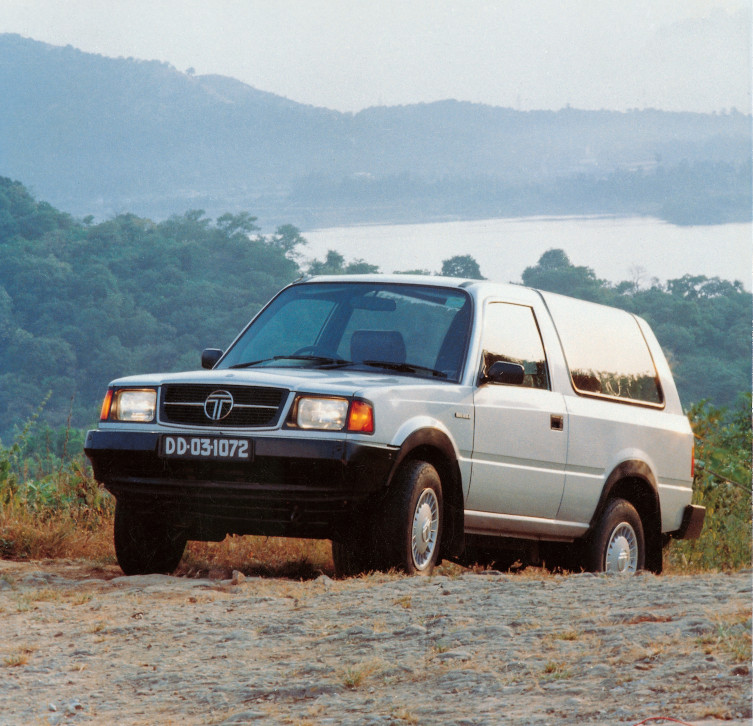
2000s
- World’s largest radio telescope (then), GMRT, design engineered by Tata Consulting Engineers, 2000
- World’s slimmest watch — Titan Edge, Titan, 2002
- 1st indigenously developed mini truck — Tata Ace, Tata Motors, 2005
- 1st Indian large-format specialist electronics retail store of India, Croma, 2006
- 1st Indian supercomputer — Eka, TCS, 2007
- 1st energy-efficient AC product range in India, Voltas, 2007
- Passport Seva Kendra transformation, TCS, 2008
Innovation as a competitive edge
“Innovation has never been more important — and leading innovators are showing why,” the BCG report notes. “The top 50 companies in the 2023 Most Innovative Companies report outperform the MSCI World Index on shareholder return by 3.3% points per year.”
The report adds, “New BCG research into the shifting drivers of performance and sustainable competitive advantage show that the ability to innovate consistently over time is fast rising in importance. Traditional markets have plateaued, and growth, which accounts for 60% to 70% of shareholder returns in the medium term, is found primarily in new markets, including those created by technology disruption, such as e-commerce, streaming media, cloud-based interactions, mobility solutions, and smart energy solutions.”
2010s
- Marathon Apps, TCS, 2012
- TCS iON, 2011
- 1st Indian online food and grocery store, BigBasket, 2011
- 1st wholly-owned, round-the-world submarine fibre optic cable network, Tata Communications, 2012
- 1st zero-emission, hydrogen-powered bus — Starbus Fuel Cell, Tata Motors, 2013
- 1st Indian interplanetary mission, Mangalyaan, supported by Tata Elxsi’s data control hardware, 2014
- ignio™, TCS, 2015
- World’s largest rooftop solar power plant, Tata Power, 2016
- 1st Indian safety watch for women, Titan, 2016
- 1st made-in-India car with 5-star GNCAP safety rating — Nexon, Tata Motors, 2018
- 1st premium all-electric SUV in the world — I-PACE, Jaguar Land Rover, 2018
- 1st -of-its-kind remote production of Indian Premier League, Tata Communications, 2018
- 1st branded steel slag products — Tata Aggreto and Tata Nirman, Tata Steel, 2018
- 1st Indian Lighthouse of the 4th Industrial Revolution, Tata Steel, 2019
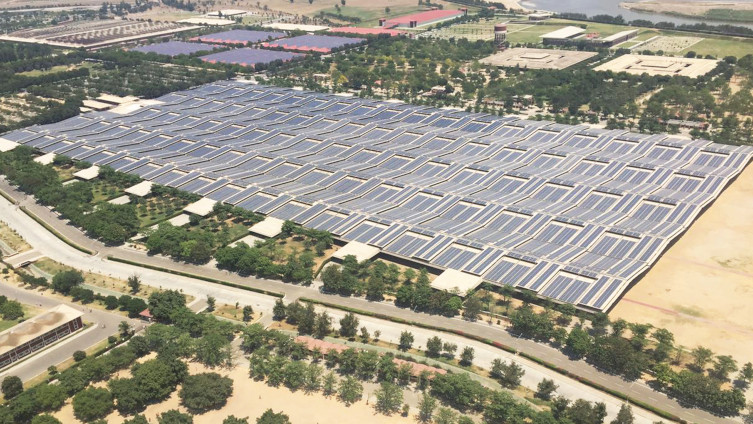
2020s
- Suraksha Card for employee safety, Tata Steel, 2020
- 1st -of-its-kind in the world digital initiative to organise steel scrap sourcing — FerroHaat™, Tata Steel, 2020
- 1st private sector manufacturing of military aircraft in India with C-295, Tata Advanced Systems, 2021
- 1st and only made-in-India EV with 4-star GNCAP rating — Tigor EV, Tata Motors, 2021
- 1st to create India’s slimmest mechanical watch — Edge Mechanical, Titan, 2021
- 1st Indian smog tower built, Tata Projects, 2021
- 1st Indian GreenPro-certified steel rebar — Tiscon, Tata Steel, 2021
- 1st smart meter deployment with NB-IoT communications in India, Tata Power, 2021
- 1st Indian sub-compact SUV — Tata Punch, Tata Motors, 2021
- 1st industrial scale carbon capture unit built in the UK, Tata Chemicals, 2022
- 1st indigenous wheeled amphibious infantry combat vehicle, Tata Advanced Systems, 2022
- 1st 100% recycled gold brand in India — Mia, Tanishq, 2022
- Tata super app — Tata Neu, Tata Digital, 2022
- 1st Indian human space flight, Gaganyaan, supported by Tata Elxsi’s crew module recovery model, 2023
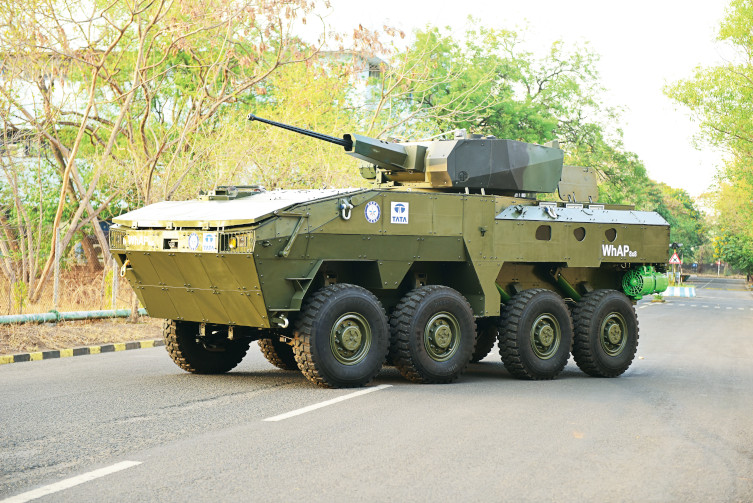
The Tata group is well prepared to remain on the vanguard in these changing times. Its core companies are innovating for new markets and new businesses, propelled by digital opportunities and the sustainability imperative. Tata Power, for instance, has deployed smart energy solutions with India’s first smart meters featuring NB-IoT communications. Tata Steel creates value from waste with India’s first branded steel slag products — Tata Aggreto and Tata Nirman — and FerroHaat™, a global first-of-its-kind digital initiative to organise steel scrap sourcing. Tata Motors continues to innovate mobility solutions with cars like Nexon EV Max, the first EV to cross the world’s highest motorable road. Additionally, the group has launched businesses of the future, like Tata Digital — which created Tata Neu, a first-of-its-kind super app for e-commerce — Tata Electronics for semi-conductor production, and Agratas Energy Storage Solutions for battery manufacturing.
Together, these have poised the Tata group for many more #TataFirsts.
People-first innovations
For the Tata group, where community has never been just another stakeholder in business, but the very purpose of its existence, it’s trajectory of innovations has also extended to the community. This has taken shape in the form of the Indian Institute of Science, a first-of-its-kind educational institute for technologists and innovators; the Tata Memorial Hospital, the first Indian institution specialising in cancer treatment; and the Tata Institute of Fundamental Research, the birthplace of India’s atomic energy endeavour, among others.
The commitment continues to this day. Earlier this year, Tata Sons announced the Tata Transformation Prize to support Indian scientists who are developing innovative technological solutions to critical societal challenges. “This prize will accelerate breakthrough innovations by the Indian scientific community,” said N Chandrasekaran, Chairman, Tata Sons. “We hope this prize will help bring the transformational work of Indian scientists to light, reward them appropriately, and encourage them in taking solutions to market. The Tata Transformation Prize is one small way in which we will promote science and scientists to solve India’s national problems.”
—Monali Sarkar






























